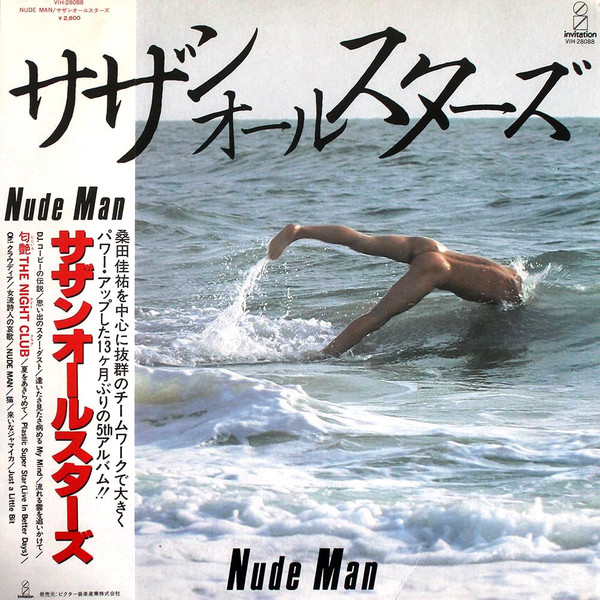What happens when four Japanese guys head to Hawaii to make a hit record? If you didn't guess a country rock album, you might not be ready for Dixie Fever. I wasn't either when I first heard it. But if you're this far down the Japanese music rabbit hole, you might as well give this one a chance. Recorded in 1976, Dixie Fever was the third album of The Sunset Gang, led by folk singer Makoto Kubota, along with Keni Inoue (guitar), Yosuke Fujita (slide guitar), and Takashi Onzo (bass).
 |
| Nohelani Cypriano |
The album also features the legendary Haruomi Hosono as co-producer, as well as notable Hawaiian talents like pianist Dennis Graue, and his wife, Nohelani Cypriano who performed backing vocals along with future permanent band member Aya "Sandii" Suzuki. And of course, it's not Hosono production without at least one Tin Pan Alley member, for which we have Tatsuo Hayashi on drums. The album was recorded at the famed Sounds of Hawaii Studios, one of the oldest studios on the island of Oahu, Hawaii, and released in Japan in 1977 under the Showboat Label.
THE MUSIC
Dixie Fever ⭐⭐⭐⭐⭐
"Sandii" Suzuki - Wild About My Lovin' ⭐⭐⭐⭐
- Camel Blues ⭐⭐⭐
- Heart Melody ⭐⭐⭐
- Hoshikuzu (Stardust) ⭐⭐⭐⭐
- Chinatown Blues ⭐⭐⭐⭐⭐
- Captain Banana⭐⭐⭐⭐
- When I Was a Cowboy ⭐⭐⭐⭐
- 一つだけ光るもの (The Only Thing That Shines) ⭐⭐⭐
THE VERDICT
Makoto's Sunset Gang was already known for combining American blues, and country folk with Okinawan and tropical stylings, Dixie Fever takes a full-on trip down the bible belt to add some good ol' fashion New Orleans Funk & R&B into the mix. The album shines most when it goes full honkey tonk, with songs like the soulful "Chinatown Blues", and the titular hoedown, "Dixie Fever", There's even a great cover of Jim Jackson's hokum classic "Wild About my Lovin'". There's also a little detour into Margaritaville with songs like "Stardust" and "Heart Melody". Despite the excellent musicianship, it's definitely offputting the first listen around, the songs sound authentic enough until you hear a Japanese man calling out different Dixie line states as if he's actually been there before and name-checking Buffalo Bill. Kubota's Kermit-Esque voice definitely fits the style, but it's still weird. If you're able to get past it, however, you're in for some silly yet surprisingly endearing Country Pop.





No comments:
Post a Comment